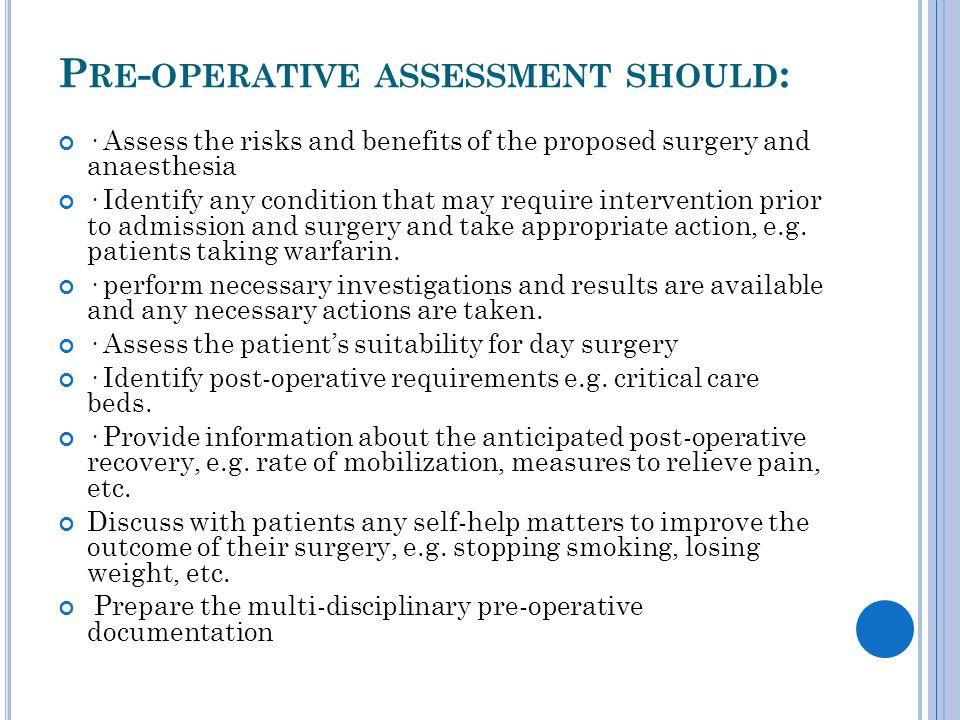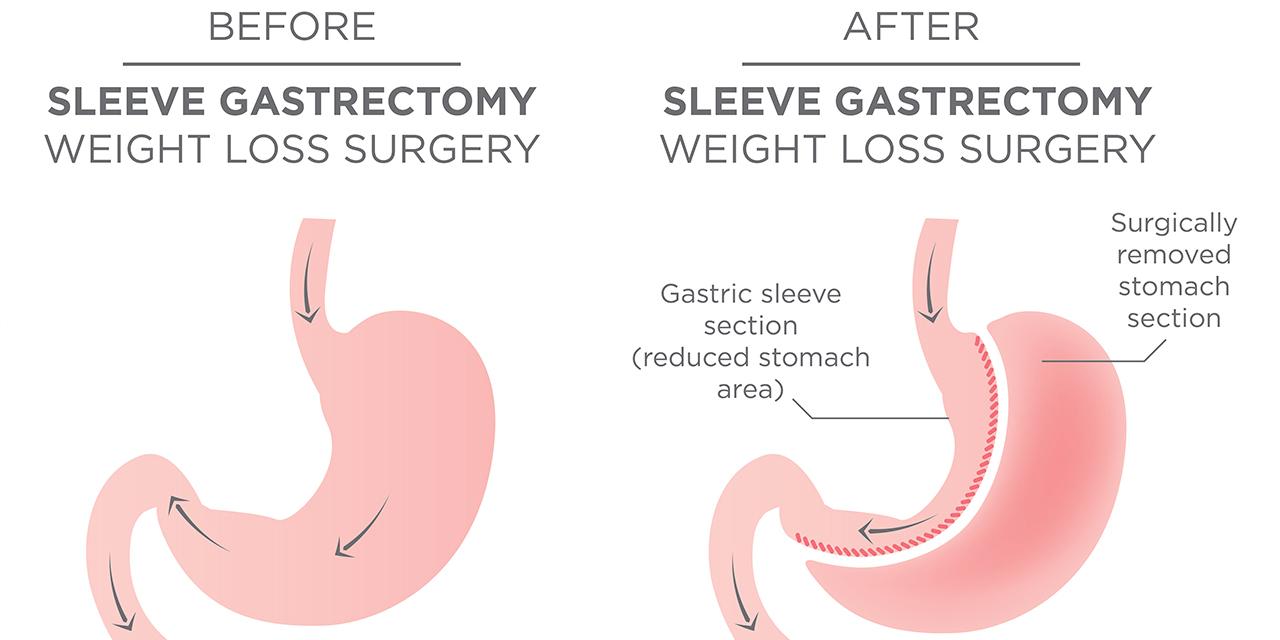In a world where health and wellness take center stage, many individuals navigate the complex landscape of weight management. For some, the journey might lead to considering weight loss surgery as a viable option. However, with various factors to assess, the decision can feel overwhelming. To help you determine if this path aligns with your goals and circumstances, we’ve created an extensive “Do I Qualify for Weight Loss Surgery” quiz. This interactive tool aims to provide clarity and insight into whether you meet the qualifications for this transformative procedure. Let’s embark on this exploration together, guiding you toward a more informed, confident decision regarding your health journey.
Table of Contents
- Understanding Weight Loss Surgery: Is It Right for You
- The Importance of a Pre-Surgery Assessment
- Key criteria for Weight Loss Surgery Eligibility
- Exploring the Different Types of Weight Loss Surgery
- How to Prepare for Your Weight Loss Surgery Quiz
- Common Myths About Weight Loss Surgery Debunked
- Evaluating Your Lifestyle Habits Before Surgery
- The Role of Support Systems in Your Weight Loss Journey
- What to Expect After Weight Loss Surgery
- Personal Stories: Successes and Challenges Post-Surgery
- Next Steps After Taking the Quiz: Your Path Forward
- Q&A
- Key Takeaways

Understanding Weight Loss Surgery: Is It Right for You
- Body Mass Index (BMI): A BMI of 30 or higher is typically the starting point for considering surgical options. Those with a BMI of 35 and above with obesity-related health conditions might potentially be prioritized.
- Previous Weight Loss Attempts: Have you tried dieting, exercise, or medication without achieving enduring results? Your weight loss history can impact your eligibility.
- Overall Health: Your current health status, including any comorbidities such as diabetes, hypertension, or sleep apnea, plays a significant role in the decision-making process.
- Commitment to Lifestyle changes: Surgery is just one part of the solution. A willingness to adopt healthy habits post-surgery is crucial for success.
- Support System: Having a robust support system can greatly influence your success. This includes family, friends, and professional guidance.
It’s vital to consult with a healthcare professional who specializes in bariatric surgery. They can evaluate your situation and recommend the most appropriate options based on medical guidelines. The assessment will typically include a comprehensive evaluation that takes into account your physical, psychological, and lifestyle factors. Here’s a brief overview of typical evaluation components:
| Evaluation Component | Purpose |
|---|---|
| Medical History Review | Assess current and past health issues. |
| Physical Examination | Determine BMI and other health metrics. |
| Psychological Assessment | Evaluate emotional readiness and potential risks. |
| Nutritional counseling | Plan for dietary changes post-surgery. |
| Exercise Readiness | Establish a physical activity plan. |
Understanding the various surgical options available can further illuminate whether this path aligns with your health goals. Common types include gastric bypass, sleeve gastrectomy, and adjustable gastric banding. Each method has its risks, benefits, and lifestyle implications. Consider the following when evaluating these options:
- Mechanism of Action: Each procedure works differently—understanding this can help you choose what might best suit your body and lifestyle.
- Recovery Time: Some procedures have quicker recovery times, which can be a significant factor if you have specific time constraints.
- Long-term Outcomes: Research and speak with professionals about the long-term success rates and potential complications associated with each option.

The Importance of a Pre-Surgery Assessment
Undergoing weight loss surgery is a significant decision that requires thorough preparation and understanding. One essential component of this preparation is the pre-surgery assessment, which serves as a crucial safety net for both the patient and healthcare providers. This evaluation not only determines the medical readiness of the individual but also identifies potential risks that could arise during or after the surgery.
You can also take the survey herehttps://www.guthrie.org/services-treatments/weight-loss-center/weight-loss-surgery/do-i-qualify-weight-loss-surgery-quiz
During the pre-surgery assessment, patients undergo a comprehensive review of their medical history and current health status. This often includes:
- Physical examinations to evaluate overall health and fitness.
- Blood tests to check for underlying conditions such as diabetes or thyroid issues.
- Cardiac evaluations for patients with a history of heart problems.
- Psychological assessments to ensure emotional readiness for the lifestyle changes following surgery.
Understanding nutrition is another vital aspect of the assessment. A registered dietitian will often be involved to help patients grasp the dietary adjustments necessary post-surgery. Patients may receive guidance on:
- Pre-surgery diet plans that prepare the body for the procedure.
- Post-operative nutritional needsare to ensure proper healing and weight loss.
- Long-term dietary habits that encourage a sustainable lifestyle after surgery.
Furthermore, evaluating psychological wellness is imperative as it lays the foundation for post-surgical success. Bariatric surgery requires a profound change in mindset and habits, making it vital for patients to address any emotional or psychological barriers beforehand. Support groups and counseling may be recommended as part of the assessment process.
Ultimately, the pre-surgery assessment acts as an informative filter to ensure that candidates for weight loss surgery are fully prepared and equipped for the journey ahead. By identifying health risks and facilitating necessary lifestyle adjustments ,this comprehensive evaluation substantially enhances the likelihood of a prosperous outcome and long-term weight management.

Criteriaeria for Weight Loss Surgery Eligibility
Determining eligibility for weight loss surgery involves a comprehensive evaluation of several critical factors. These criteria help ensure that candidates are well-suited for the procedure and capable of maintaining a successful outcome. Health care professionals typically assess both physical and psychological aspects to provide a holistic understanding of each individual’s situation.Onee of the primary considerations is the individual’s body mass index (BMI). Generally, candidates should have a BMI of 40 or higher, or a BMI of 35 or higher accompanied by obesity-related health conditions such as diabetes or hypertension. This metric is a key indicator of whether the surgery is advisable and will likely lead to health improvements. Below is a simple comparison table for different BMI categories:
| BMI Category | BMI Range |
|---|---|
| Underweight | below 18.5 |
| Normal Weight | 18.5 – 24.9 |
| Overweight | 25 – 29.9 |
| Obesity | 30 – 39.9 |
| Severe Obesity | 40 and above |
Another essential factor is the presence of comorbidities, which are other health-related issues directly linked to obesity. Common conditions include sleep apnea, cardiovascular disease, and type 2 diabetes. These medical complications frequently enough necessitate surgical intervention ,as they can significantly impact a person’s overall health and quality of life. A thorough medical evaluation is crucial for identifying these issues and aligning them with surgical options.
Additionall y,psychological readiness plays a vital role in determining eligibility. Individuals must demonstrate a commitment to lifestyle changes post-surgery and have realistic expectations about the weight loss journey. Assessments may include counseling sessions, which aim to evaluate mental health, support systems, and readiness for the challenges that accompany significant weight loss.
Lastly, candidates must engage with a multidisciplinary team that typically includes healthcare providers from various fields—physicians, nutritionists, and mental health professionals. This collaborative approach ensures comprehensive care and encourages a well-rounded outlook on the decision to pursue weight loss surgeExploringloring the Different Types of Weight Loss Surgery
Weight loss surgery, often referred to as bariatric surgery, encompasses a variety of surgical procedures designed to assist individuals struggling with obesity. Each type of surgery carries its benefits, risks, and eligibility criteria, making it essential for potential candidates to understand the differences. Here’s a closer look at some common types.
Gastric bypass Surgery involves creating a small pouch at the top of the stomach and connecting it directly to the small intestine. This method not only restricts the amount of food one can consume but also alters how the body absorbs nutrients, which can lead to significant weight loss. Candidates for this surgery typically have a BMI of 30 or higher, along with obesity-related health issues.
Gastric Sleeve Surgery is another popular option where a large portion of the stomach is removed, leaving a sleeve-like structure. This limited stomach size results in reduced appetite and calorie intake. Ideal candidates are those with a BMI of 40 or greater,r but may also qualify at a BMI of 35 if other medical conditions are present.
Adjustable Gastric Banding, often referred to as the lap band procedure, involves placing an inflatable band around the upper part of the stomach. This technique is less invasive and adjustable ,allowing for customization based on individual weight loss progress. Candidates generally must have a BMI of at least 30 and should be prepared for regular follow-up appointments to adjust the band.
In addition to the above, two other noteworthy procedures include Biliopancreatic Diversion with Duodenal Switch—a more complex surgery that allows for significant weight loss by altering how food is digested—and Intragastric Balloon placements, a non-surgical temporary method involving a balloon inserted into the stomach to promote full ness.Each option requires thorough consultation with medical professionals to determine the most suitable method based on personal health profiles and weight loss goals.

How to Prepare for YouWeightght Loss Surgery Quiz
Preparing for a quiz about your eligibility for weight loss surgery involves several critically important steps that will enhance your understanding of the process and clarify your own goals. Start by gathering relevant facts about weight loss surgery options, potential benefits, and the risks involved. Understanding the different procedures can help you make informed decisions and answer questions more accurately in your quiz.
It’s also crucial to reflect on your weight loss journey. Consider your medical history, current health conditions, and any previous attempts at weight management. Make a list of your weight-related challenges, including:
- Height and weight measurements
- diet habits and lifestyle choices
- Any past medical treatments
- Your emotional relationship with food
Once you have gathered the necessary information, familiarize yourself with the standard eligibility criteria for weight loss surgery. These often include specific BMI thresholds, age restrictions, and the requirement for a commitment to long-term lifestyle changes. For an easy reference, check the table below outlining common eligibility criteria:
| Eligibility Criteria | Details |
|---|---|
| Body Mass Index (BMI) | Usually over 40 or over 35 with obesity-related conditions |
| Age | Typically, candidates are between 18 and 65 years old |
| Health Conditions | The presence of obesity-related comorbidities encouraged |
| Commitment | A willingness to adhere to all pre- and post-surgery guidelines |
Lastly, it’s a good idea to discuss your intentions with a healthcare provider or a nutritionist who specializes in weight management. These professionals can guide you through the quiz preparation process, offer insight into your specific circumstances, and address any concerns you may have. Their support will provide a more comprehensive understanding of the journey ahead, increasing your confidence as you prepare for your assessment.
Common Myths About Weight Loss Surgery DebuMany
Another common misconception is that weight loss surgery is only for those who are extremely obese. While it’s true that this type of surgery is often recommended for individuals with a Body Mass Index (BMI) of 40 or higher, many candidates with a BMI of 30-39 who also suffer from obesity-related health problems can be eligibleThusus, the criteria for eligibility can vary significantly based on personal health situations, not just numbers on a scale.
Some believe that after surgery, they can eat whatever they want without consequences. Thoug, this myth holds little truth. After a weight loss procedure, the body undergoes drastic changes, making certain foods challenging to digest. Patients often report intolerance to high-sugar or fatty foods. Understanding the importance of post-operative nutritional guidelines is essential for sustainable success and health post-surgery.Sociall perceptions also play a role in myths surrounding weight loss surgery. A false belief is that patients will regain all their weight after surgery. While it’s possible to gain weight back, many individuals who maintain regular follow-ups with healthcare teams, adhere to meal plans, and uphold their commitment to physical activity tend to retain their weight loss. Behavior deviation can occur; however, the support system significantly contributes to lasting weight management.
| Myth | Reality |
|---|---|
| Weight loss surgery is an easy fix. | It requires ongoing lifestyle changes and commitment. |
| Only those with a high BMI can qualify.Some | e individuals with lower BMI and health issues can qualify. |
| Post-surgery, dietary rules do not apply. | Certain foods may be intolerable, and healthy eating remains essential. |
| Most patients regain their weight. | Success depends on continued lifestyle choices and support systems. |
Evaluating Your Lifestyle Habits Before Surgery
Before proceeding with any surgical intervention, it’s crucial to take a step back and evaluate your current lifestyle habits .This not only helps in assessing your eligibility for weight loss surgery but also prepares you for the transformative journey ahead. Identifying patterns in your daily routine can shed light on how modifications may improve your overall health and surgical outcomes.
Analyzing your dietary choices is a key aspect of this evaluation. Consider keeping a food diary for a week to track what you eat, including portion sizes and any emotional influences on your eating habits. Key points to examine include:
- Frequency of fast food consumption
- Intake of processed and sugary foods
- Habitual skipping of meals, especially breakfast
In addition to dietary habits, it’s essential to assess your physical activity levels. Regular exercise plays a vital role in both weight management and overall health. Take a moment to reflect on your current activity patterns and consider the following:
- Weekly exercise routine (frequency and type)
- Sitting time versus active time in your day
- Enjoyment of physical activities and willingness to engage
Equally critically important are your emotional and psychological factors. Surgical success is not only determined by physical changes but also by your mental readiness for the lifestyle changes that follow. Consider these questions:
- Are you prepared to face emotional eating triggers?Doo you have support systems in place?
- How do you cope with stress and anxiety?
Lastly, document any existing medical conditions or medications you are currently taking, as they can influence both your surgical candidacy and recovery process. Consider creating a table to easily summarize this information:
| Condition | Medication | Notes |
|---|---|---|
| Hypertension | Lisinopril | Controlled with medication |
| Type 2 Diabetes | Metformin | Diet and medication management |
| Sleep Apnea | CPAP device | Used during sleep |
By conducting a thorough evaluation of these aspects of your lifestyle, you lay the groundwork for informed discussions with your healthcare provider about the path forward. This preparation can empower you to take control of your health and enhance the potential benefits of weight loss surgery.

The Role of Support Systems in Your Weight Loss JourAsy
as you embark on your weight loss journey, having a sturdy support system is crucial for navigating the challenges that may arise. Surrounding yourself with the right people and resources can make a significant difference in your motivation and success. Engaging with family, friends, and even online communities can provide a sense of belonging and understanding, which is essential for sustaining you throughout your transformation.
One of the most compelling advantages of a support system is the emotional resilience it fosters. When faced with setbacks or moments of self-doubt, having someone to talk to can alleviate feelings of isolation. Consider connecting with individuals who share similar goals; their experiences can provide valuable insights and encouragement. Support groups, both online and in person, can be a treasure trove of motivation, offering practical tips as well as emotional backing.
In addition to emotional support, accountability plays a paramount role in your weight loss efforts. Regular check-ins with a friend or mentor can help you stay on track. These accountability partners can also help to set realistic goals and celebrate your achievements, no matter how small. Group activities, such as exercise classes or cooking sessions, can reinforce healthy habits while deepening interpersonal connections. Here are a few simple ways to foster accountability:
- Check in weekly with a friend about your progress.
- Join a local weight loss group for shared motivation.
- Use a fitness app to share goals and accomplishments.
With proper guidance, support systems can also help you make informed decisions regarding medical interventions like weight loss surgery. Discussing your concerns and questions with those who have undergone similar procedures can provide clarity. Attending informational seminars or workshops can enhance your understanding of the surgical process and help you gauge whether it aligns with your journey. Here’s a simple table summarizing key considerations when seeking external support:
| Support Type | Benefits |
|---|---|
| Friends & Family | Emotional backing and encouragement |
| Support groups | Shared experiences and motivation |
| Healthcare Professionals | Expert advice and personalized plans |
| Online communities | 24/7 access to support and resources |
Ultimately, the strength of your support network can significantly amplify your ability to achieve and maintain your weight loss goals. Actively seeking a diverse array of support will not only bolster your journey but will also enrich your overall experience. Whether it’s through shared meals, group workouts, or simply uplifting conversations, recognizing the importance of support as a catalyst for change is vital on the path to a healthier you.
What to Expect After WeLossLossloss Surgery
Undergoing weight loss surgery can be a transformative experience ,but it’s essential to understand the journey that follows. Expect a variety of changes in your life and body, and also the necessity for adjustments in daily habits. This can include dietary changes, emotional shifts, and alterations in your social interactions.
Initially, one can expect a dramatic reduction in weight within the first few months. This rapid weight loss is often encouraging, but it’s crucial to focus on the long-term plan. The body undergoes significant changes, including the following:
- Increased energy levels after early recovery
- Enhanced mobility and physical capability
- improved overall health, with decreased risks of obesity-related conditions
Navigating post-surgery life will require a commitment to a new dietary regimen. Gradually, you’ll transition from a liquid diet to solid foods. Expect to adopt principles of healthy eating such as:
- Portion control to help prevent overeating
- Mindful eating practices to enhance satisfaction
- Regularly scheduled meals to maintain metabolic stability
In addition to physical changes, emotional and psychological impacts are common. Many patients experience feelings of elation, but some might also encounter sadness or anxiety as they adapt to their new body and lifestyle. Support networks, such as:
- Support groups for sharing experiences
- Counseling to address emotional challenges
- Nutritionists or dietitians for tailored advice
Your follow-up care is critical for sustained success post-surgery. Regular check-ups can help monitor your progress, assess nutritional intake, and adjust your health plan as necessary. Here’s a brief overview of what a follow-up schedule might look like:
| Time Frame | Check-up Focus |
|---|---|
| 1 month | Initial weight loss and nutrition assessment |
| 3 months | Evaluation of dietary habits and physical activity |
| 6 months | Long-term weight management and emotional health |
| 1 year | Comprehensive health evaluation and goal setting |
Adjusting to life after weight loss surgery takes patience and resilience. By embracing these changes and seeking support, you can significantly enhance the quality of your life and achieve lasting health and wellness.

Personal Stories: Successes and Challenges Post-Surgery
As many individuals embark on the journey to weight loss surgery y,they often encounter a mix of triumphs and setbacks that shape their experience. One inspiring story comes from Jamie, who found success after gastric bypass surgery. Within six months, Jamie lost over 100 pounds, leading to increased mobility and newfound confidence. However, the road wasn’t without obstacles .Adjusting to a new diet and lifestyle proved challenging, as cravings and emotional eating resurfaced. Despite these hurdles, Jamie embraced the journey, attending support groups and focusing on long-term goals.
Conversely, Kelly’s experience mirrors the challenges that can accompany post-surgery lif e .While she initially lost a significant amount of weight after her gastric sleeve procedure, fluctuating emotions and feelings of isolation began to take a toll. Ballooning back to a few pounds over her goal weight, Kelly struggled with the psychological and physical aspects of weight management. Recognizing the importance of mental health, she sought therapy, which helped her confront the underlying issues related to her food habits and self-image.
Another compelling story is that of Mark, who faced issues with nutritional deficiencies after his surgery. After experiencing fatigue and hair loss, Mark discovered he wasn’t adhering properly to the recommended vitamin regimen. Through consultations with a dietitian, he learned to prioritize nutrient-rich foods and began to feel revitalized. This not only boosted his energy levels but also helped him regain control over his health and well-being.
On a more positive note, Rachel’s journey after weight loss surgery exemplifies how embracing a supportive community can lead to success. Initially dejected by past failures, she found motivation by joining online forums and local meet-up groups of individuals with similar experiences .This network provided her with practical advice, encouragement, and accountability, easing her transition into a healthier lifestyle. Rachel’s transformation included not only weight loss but also a powerful emotional and social rebirth.
Ultimately, the experiences of these individuals underline a vital concept in the post-surgery journey: every story is unique. While some individuals may find rapid success, others may navigate a labyrinth of challenges. The common thread among them is the journey itself. They remind us that it’s not solely about the numbers on the scale, but also about personal growth, self-acceptance, and the pursuit of a fulfilling life.Sharing these experiences fosters understanding and compassion for those who are contemplating their own paths to weight loss surgery.

Next Steps After Taking the Quiz: Your Path Forward
Congratulations on completing the quiz! Understanding your eligibility for weight loss surgery is an important step in your journey to improved health and well-being. Now that you have your results, it’s time to consider the next steps. Depending on your quiz outcomes, you may find yourself exploring multiple pathways forward.
First, if the quiz indicates that you are a candidate for weight loss surgery, the next logical step is to consult with a qualified healthcare professional. This could be a surgeon specializing in bariatrics or a registered dietitian who can guide you through the pre-surgery process. During this consultation, you will be able to:
- Discuss your medical history and weight loss goals.
- Learn about different types of weight loss surgeries such as gastric bypass, sleeve gastrectomy, or adjustable gastric banding.
- Explore the necessary lifestyle changes and pre-operative requirements.
- Ask any questions or concerns you may have about the surgery and its outcomes.
If the quiz results suggest you may not qualify for surgery at this time, don’t be disheartened. Your health journey can still progress through choice methods. Consider focusing on:
- Establishing a balanced diet rich in essential nutrients.
- Incorporating a regular exercise routine suitable for your current health status.
- Working with a nutritionist or a personal trainer to help create a personalized health plan.
- Joining support groups to connect with others who share similar challenges and goals.
Additionally, it’s crucial to stay informed.Researching the latest developments in bariatric surgery and weight management can empower you to make more educated decisions. Attend workshops or informational meetings at local obesity clinics or hospitals, as they frequently enough offer resources that can enhance your understanding of surgical options and weight loss strategies.
remember that your journey is unique, and everyone’s path looks different. A healthy lifestyle approach that works for you now might evolve as your circumstances change. Surround yourself with a support network of family, friends, and healthcare professionals who encourage you to take the steps necessary for a healthier future. Celebrate each milestone along the way, no matter how small, as they all contribute to your overarching goal of improved health and wellness.
Q&A
Q&A: do I Qualify for Weight Loss Surgery? Your Quiz Guide
Q1: What is weight loss surgery, and how can it help me?
A: Weight loss surgery, or bariatric surgery, refers to various procedures designed to help individuals with severe obesity achieve significant weight loss.By altering your digestive system, these surgeries can curtail food intake and affect nutrient absorption, ultimately helping you shed excess weight and improve your overall health.
Q2: How do I know if I qualify for weight loss surgery?
A: Qualification typically depends on several factors, including your BMI (Body Mass Index), health history, and readiness to commit to lifestyle changes post-surgery. The most common requirement is generally a BMI of 40 or higher, or a BMI of 35 with obesity-related health issues.
Q3: What is a BMI, and how do I calculate it?
A: Your BMI is a numerical value derived from your height and weight, serving as an indicator of body fat.To calculate it, divide your weight in kilograms by the square of your height in meters. You can find online calculators that simplify this process!
Q4: Are there any health conditions that might make me eligible?
A: Yes! If you have obesity-related conditions, such as type 2 diabetes, hypertension, sleep apnea, or joint problems, you may qualify for surgery even if your BMI is below 40. These conditions can complicate your health and may warrant surgical intervention to improve your overall well-being.
Q5: Is weight loss surgery the only option for me?
A: not at all! Weight loss surgery is often considered when customary methods such as diet, exercise, and medications have failed. It’s essential to discuss all available options with your healthcare provider to determine the best approach tailored to your unique situation.
Q6: What lifestyle changes are expected after surgery?
A: A commitment to a new lifestyle is crucial for long-term success post-surgery.This may include dietary modifications, adhering to a structured exercise program, attending support groups, and maintaining regular follow-up appointments with your healthcare team.
Q7: What if I take the quiz and think I qualify? What’s next?
A: If you believe you qualify based on your quiz results, the next step is to consult a healthcare provider who specializes in weight loss surgery. They can assess your eligibility, discuss the various surgical options, and help you navigate the process.
Q8: Can I change my mind about weight loss surgery after I start the process?
A: Absolutely. The journey to considering weight loss surgery is personal and can evolve. If at any point you feel it’s not the right choice for you, it’s essential to communicate your feelings with your healthcare team. They can provide support and alternative options.
Q9: Is there anything else I should consider before getting weight loss surgery?
A: Beyond the physical aspects, consider the emotional and psychological impacts of surgery. Many patients benefit from counseling or support groups to address the challenges and adjustments that come with this lifestyle transformation.
Q10: Where can I access a weight loss surgery eligibility quiz?
A: Many reputable healthcare websites, obesity centers, and support groups offer free quizzes and assessments. Ensure you’re using credible sources and follow up with healthcare professionals for accurate assessments.
This Q&A aims to provide a straightforward understanding of the qualification process for weight loss surgery. Remember, it’s essential to seek personalized advice from healthcare professionals regarding your weight loss journey.
Key Takeaways
As you navigate the path toward a healthier lifestyle, understanding your eligibility for weight loss surgery is a crucial step. The journey can frequently enough feel overwhelming with myriad options and assessments, but taking the time to evaluate your qualifications is a significant move toward empowerment. our “Do I Qualify for Weight Loss Surgery Quiz” serves as a guiding light, illuminating your options and helping you make informed decisions about your health.
Remember, this quiz is just the beginning; it’s a tool to spark conversations with healthcare professionals, who can provide personalized insights based on your unique situation. Whether you find yourself ready to take action or simply exploring the possibilities,every step you take is a step toward a more vibrant you.
So, as you reflect on your results, keep in mind that this journey is not just about numbers on a scale. It’s about reclaiming your health, confidence, and quality of life. Embrace each decision and hurdle with courage, and remember that support is always available, guiding you toward your best self. Your journey toward transformation awaits—let’s take that first step together!
